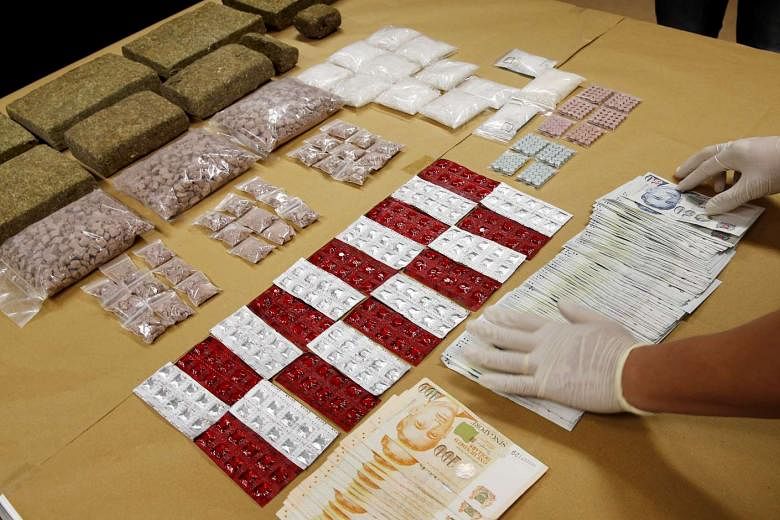The growing number of young, first-time drug abusers is a cause for concern, and schools and parents can do more to help, said Singapore Anti-Narcotics Association executive director Abdul Karim.
According to the latest Central Narcotics Bureau (CNB) statistics, nearly 70 per cent of new drug abusers arrested last year were below the age of 30. New abusers below the age of 20 jumped from 172 in 2014 to 260 last year.
Mr Karim said the ease of access to information as well as the loosening of drug laws in places such as Colorado in the United States could mislead youth to think that drugs such as cannabis are not dangerous. And it is not easy to monitor youth online activity.
"(Schools) must be aware of what is happening, the misinformation that youth may be getting from the Internet, and try to address this," he said.
Parents could play a more proactive role as well.
"We need to encourage parents who may be concerned... to come forward and seek help or information," he added. "Perhaps we can look at whether there are enough channels for parents to raise this issue."
CNB said it has produced an anti-drug toolkit for educators and counsellors, and is making similar ones for parents and national service commanders, so that they can help young people to stay drug-free.
Mr Eddie Joseph, assistant director of halfway house Teen Challenge, said: "Many youth think that cannabis is not as serious. Usually, it is introduced to them by their peers at parties.
"But if we don't deal with young people who consume cannabis, they will soon 'graduate' to harder drugs," he said. "Young people are the most vulnerable group. They like to take risks and don't think as much about the consequences."
Psychiatrist Adrian Wang said there are risks to underestimating the dangers of drugs. "People think that they can use drugs recreationally, but even such use can cause depression, hallucinations and long-term use could lead to addiction," he said.
Said CNB yesterday: "The abuse of cannabis has also been associated with mental health problems and respiratory problems, and is especially harmful to youth."
It added: "There have been certain global developments that have led many to assume that cannabis is harmless... Many, especially impressionable youth, may start to believe these claims."
Young drug abusers have made up the bulk of first-time offenders since around 2011.
Seow Bei Yi

